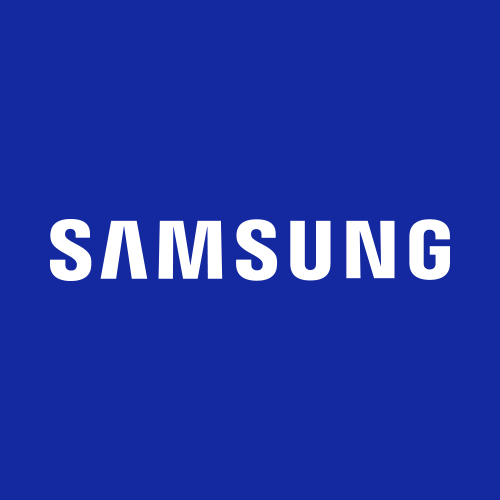- Mark as New
- Bookmark
- Subscribe
- Mute
- Subscribe to RSS Feed
- Permalink
- Report Inappropriate Content
10-10-2018 02:49 PM in
Monitors and MemoryI have connected a new 860 EVO SSD in two different computers running Windows 10 and I get the same behavior on both of them. The SSD shows up in the BIOS and in the Device manager under disk drives but it's not visible at all under Disk Management which means I can't format it, assign a drive letter or do anything.
Running list disk in diskpart also does not show the drive.
I have run the Windows Memory Diagnostics app. No help. Tried different SATA ports. Samsung Magician can't see it.
I am not sure if this means the ssd is faulty or not. Any ideas on how to troubleshoot this further?
Solved! Go to Solution.
1 Solution
Accepted Solutions
- Mark as New
- Bookmark
- Subscribe
- Mute
- Subscribe to RSS Feed
- Permalink
- Report Inappropriate Content
10-11-2018 09:08 AM in
Monitors and MemoryIt seems there's a bug where Windows 10 doesn't recognize the SSD if it's not formatted. I used a third party tool formater and then it showed up in Disk Management.
- Mark as New
- Bookmark
- Subscribe
- Mute
- Subscribe to RSS Feed
- Permalink
- Report Inappropriate Content
10-11-2018 05:35 AM (Last edited 10-11-2018 05:48 AM ) in
Monitors and MemoryI bought today one Samsung SSD 860 PRO and one 860 EVO connected with and SATA to USB cable and both are recognise as ASMT 2105 USB Device in Windows Device Manager.
Samsung Magician 5.2.1 is telling me that there are not supported. Windows for Business 1809 version 10.0.17763.55
Windows for Business 1809 version 10.0.17763.55
If someone could help?
- Mark as New
- Bookmark
- Subscribe
- Mute
- Subscribe to RSS Feed
- Permalink
- Report Inappropriate Content
10-11-2018 09:08 AM in
Monitors and MemoryIt seems there's a bug where Windows 10 doesn't recognize the SSD if it's not formatted. I used a third party tool formater and then it showed up in Disk Management.
- Mark as New
- Bookmark
- Subscribe
- Mute
- Subscribe to RSS Feed
- Permalink
- Report Inappropriate Content
07-31-2019 10:41 AM in
Monitors and Memoryexcuse me
I have the same propblem but I do not know how can I use a third party tool formater?
- Mark as New
- Bookmark
- Subscribe
- Mute
- Subscribe to RSS Feed
- Permalink
- Report Inappropriate Content
03-27-2020 12:15 PM in
Monitors and MemoryFor future people the answer to this questions is a free program you can download called Rufus. Install it and it will show the drive. Change the format to UEFI/NTFS and your computer will recognize the SSD.
- Mark as New
- Bookmark
- Subscribe
- Mute
- Subscribe to RSS Feed
- Permalink
- Report Inappropriate Content
09-09-2020 05:45 PM in
Monitors and MemoryRufus did not work for me, actually several third party apps were of no use since the drive was never assigned a drive letter and it is not visible within the file system of Windows!
I have made a post here on the Samsung forums to address this issue utilizing the Disk Management software included in Windows.
- Mark as New
- Bookmark
- Subscribe
- Mute
- Subscribe to RSS Feed
- Permalink
- Report Inappropriate Content
02-22-2021 04:28 PM (Last edited 02-22-2021 04:29 PM ) in
Monitors and MemoryI can't see the solution. I'm a noob
You do not have sufficient privileges for this resource or its parent to perform this action.
Click your browser's Back button to continue.
- Mark as New
- Bookmark
- Subscribe
- Mute
- Subscribe to RSS Feed
- Permalink
- Report Inappropriate Content
12-29-2018 12:42 PM (Last edited 12-29-2018 12:44 PM ) in
Monitors and MemoryI had this same problem. Magician says it's unsupported, even though it can "see" it on the dropdown at the top.
However I did clone my disk onto it using Acronis 2019 True Image and it installed and worked fine in my Windows 10 box. I initially tried Acronis 2016, which I already had, but that didn't work because of an "Unsupported Authentication" error. However once I upgraded to Acronis 2019 I was able to clone the drive just fine, and it has been working great since then.
- Mark as New
- Bookmark
- Subscribe
- Mute
- Subscribe to RSS Feed
- Permalink
- Report Inappropriate Content
10-12-2018 12:59 AM in
Monitors and MemoryI found out that you need to copy your HDD to your new SSD with Samsung Data Migration tool.
https://www.samsung.com/semiconductor/minisite/ssd/download/tools/
and after you have a full functional drive
- Mark as New
- Bookmark
- Subscribe
- Mute
- Subscribe to RSS Feed
- Permalink
- Report Inappropriate Content
10-24-2018 07:30 PM in
Monitors and MemoryIf you can see the ssd in the Device manager, you can try to update the driver to see if the issue can be resolved.
Right-click on the disk and select "Update Driver Software" from context menu.
Select Search automatically for updated driver software.
In addition to, you can directly right-click on the ssd in Device Manager and select Uninstall, then restart PC and Windows will automatically update and reinstall the driver of the disk.
If this method does not work, either, you need to check whether there are some bad sectors on the ssd. If there are, you need to repair bad sectors.

